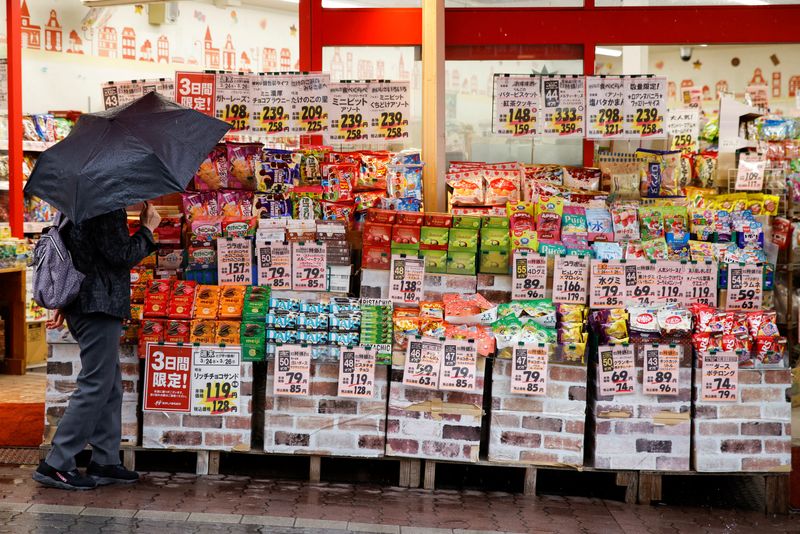Inflation in Japan’s capital accelerates, keeps BOJ rate hike prospects
2024.06.27 20:56
By Leika Kihara
TOKYO (Reuters) -Core inflation in Japan’s capital accelerated in June on rising fuel bills and the boost to import costs from a weak yen, data showed on Friday, keeping alive expectations for a near-term interest rate hike by the central bank.
Separate data showed factory output rebounded nationally in May as automakers recovered from shipment disruptions, offering policymakers hope the economy was on track for a moderate recovery.
The data may help the Bank of Japan (BOJ) make the case to raise interest rates as early as this month, as cost pressures from the weak yen heighten the chance of inflation staying well above its 2% target in coming months, analysts say.
The core consumer price index (CPI) in Tokyo, considered a leading indicator of nationwide figures, rose 2.1% in June from a year earlier, accelerating from the previous month’s 1.9% gain and exceeding market forecasts for a 2.0% gain.
A separate index that excludes the effects of fresh food and fuel costs, closely watched by the BOJ as a broader price trend indicator, also rose 1.8% in June after a 1.7% gain in May.
Marcel Thieliant, head of Asia-Pacific at Capital Economics, said a jump in industrial products prices in the CPI appears to vindicate the BOJ’s concerns that rising import costs are being passed through faster than in the past.
“The latest inflation data are consistent with our view that the Bank will lift its policy rate further at its July meeting,” he said.
Factory output rose 2.8% in May from the previous month, exceeding market forecasts for a 2.0% gain, due largely to a sharp rebound in auto production, data showed on Friday.
Japan’s economy shrank an annualised 1.8% in the first quarter as companies and households reduced spending, casting doubt on the central bank’s view of a moderate recovery.
While analysts expect growth to rebound in the current quarter, a weak yen is weighing on household sentiment by pushing up the cost of imports for fuel and food.
The BOJ ended eight years of negative interest rates and other remnants of its radical monetary stimulus in March as it judged that sustained achievement of its 2% inflation target has come into sight.

BOJ Governor Kazuo Ueda has said the central bank will raise interest rates from current near-zero levels if underlying inflation, which takes into account CPI and broader price gauges, accelerates toward 2% as it currently projects.
The central bank expects rising wages to push up service inflation and keep inflation durably around 2%, a condition it set as a prerequisite to further phase out monetary stimulus.








